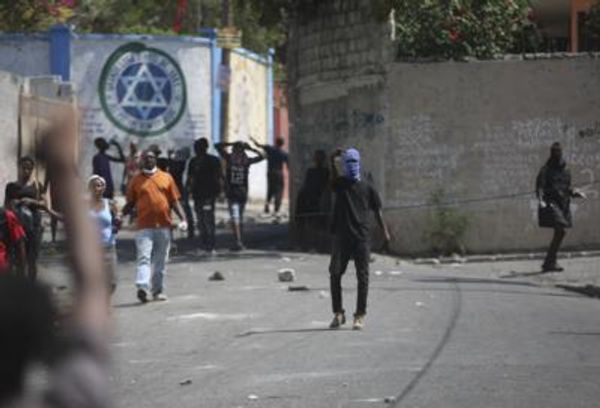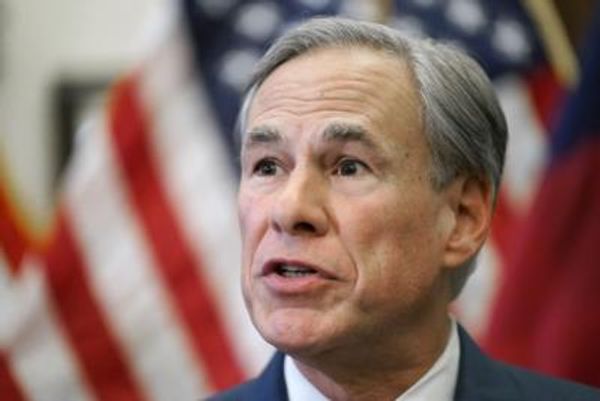
Eyes screwed shut, streaming tears, Mohammad Salauddin recalls the moment he was struck by exploding chemicals and glass in the latest deadly disaster to hit Bangladesh’s manual workers.
More than 40 people were killed and 200 injured – mostly port workers and firefighters – in Saturday’s fire in a depot near the southeastern port of Chittagong, which handles most of the country’s readymade clothes exports to the West.
Salauddin, a driver at the facility, was working to remove some containers from the vicinity of the fire when several other chemical-filled containers exploded.
“I was in my driving seat when the explosion occurred. Glass and chemicals hit my eyes, causing serious injury,” said Salauddin, 35, as his wife stood by his bedside in a ward full of victims of the fire in Chittagong Medical College Hospital.
“I may very likely have problems continuing in my job. I cannot open my eyes nor see things,” said Salauddin, who had been working for the Dutch-Bangladesh BM Container Depot for seven years, earning up to 30,000 taka ($319) a month.
Salauddin said he was desperate for compensation as the sole earner in a family of seven.
Bangladesh’s laxity towards workers’ safety garnered global attention after more than 1,100 garment workers were killed when the eight-storey Rana Plaza collapsed in 2013.
Saturday’s blaze has once again put the spotlight on the risks faced by low-paid workers in Bangladesh, where at least 200 people have been killed in fires in factories and other commercial settings since 2017, according to a Reuters news agency count.

Fire officials have said the depot blaze may have been started by a container of hydrogen peroxide and that safety regulations were not followed.
“A case has been filed against eight people who were directly in charge of the depot,” said Ashraful Karim, a senior police official, in Sitakunda, where the inland depot is sited, 40km (25 miles) from Chittagong city.
“The owner of Smart Group is not named but if investigation finds evidence against him, he might be included in that case,” he said, referring to BM Container Depot’s parent company.
Shamsul Haider Siddiqui, general manager of Smart Group, said the firm was investigating the causes of the fire and explosion.
“Hydrogen peroxide is being exported through our depot following due process with the permission of the concerned authorities,” he said in a statement.
Smart Group has promised to pay one million taka (about $10,670) compensation for every death. The government has also promised compensation and is making a list of the dead and injured.
At a booth near the hospital, relatives gave blood so that their DNA could be used to help identify the dead.
“It is upon owners to ensure safety of workers or anyone else in a factory or workplace. Only a gross mismanagement of hazardous materials could cause an accident of these proportions,” said Md Sekender Ali Mina, a campaigner.
“The government also needs to step up its supervision of workplaces to ensure workers’ rights,” said Mina, member secretary of Sramik Nirapotta Forum, which advocates for workers’ safety.
‘Cannot continue working’
The Thomson Reuters Foundation spoke to five survivors and the relatives of two other victims, all of whom were working in the depot when the fire broke out.
Minutes after firefighters arrived, a huge explosion shook the ground, throwing people and containers in the air and creating an inferno, said the drivers and freight handlers, all of whom sustained eye injuries. Most were also burned.
Perched on a hospital bed with a bandage around his stomach, Mohammad Mohiuddin and his wife were worried about providing for their three children without his 12,000 taka salary.
“My whole body got burnt, besides eye injuries. If I don’t get my health back, I cannot continue working,” said the 40-year-old freight handler.
“Without support, I would have to starve to death along with my kids. I expect compensation from both the government and the company.”
Smart Group said it will pay 600,000 taka ($6,401) in compensation for those who were seriously injured, maimed or lost organs.
Children of the deceased will also get the equivalent of their lost parent’s salary until adulthood, Siddiqui said in a statement.
“We are collecting data to give the money to the right persons,” said Bablu Kumar, a manager of Smart Group, standing outside the hospital.
Rafiq Uddin Ahmed, a burns specialist, said some of the survivors he had been treating were likely to need long-term care, including physiotherapy and treatment for trauma.
“Complications in the scars may call for plastic surgery,” he said during a short break at the hospital, where he has been working without respite for three days.

Some victims were sceptical about receiving support.
“I don’t really expect any compensation as I never heard that victims receive compensation,” said Hasan Habib, 20, a BM Container Depot driver who earned 10,000 taka a month.
“I have eye injuries. I am unable to see anything. I may need long rest and will have problems in continuing my job unless my eyes get better.”
History suggests that the hundreds of families whose lives have been devastated by this week’s disaster will struggle to recover.
One of Bangladesh’s worst industrial fires was at the Tazreen Fashion factory on the outskirts of the capital, Dhaka, in 2012, in which 112 workers died.
Sumi Akter, 30, injured her leg fleeing the blaze.
“My husband left me after a few months of the accident, unwilling to bear the expenses of my treatment. I am now jobless and indeed unemployable given my traumatic injury,” she said.
“Some nights I wake up and howl in pain.”
Akter, her sisters and parents – her father cannot work after his leg was crushed on a construction site – rely on two brothers to provide for them.
A survivors’ fund was set up in 2015 by brands whose products were made at the factory. But Akter missed out because she was at her rural home at the time.
In 2020, dozens of survivors staged a sit-in for more than two months outside the national press club, demanding better compensation and treatment.
“There was absolutely no response,” said Asaduzzaman Asad, one of the protesters.







